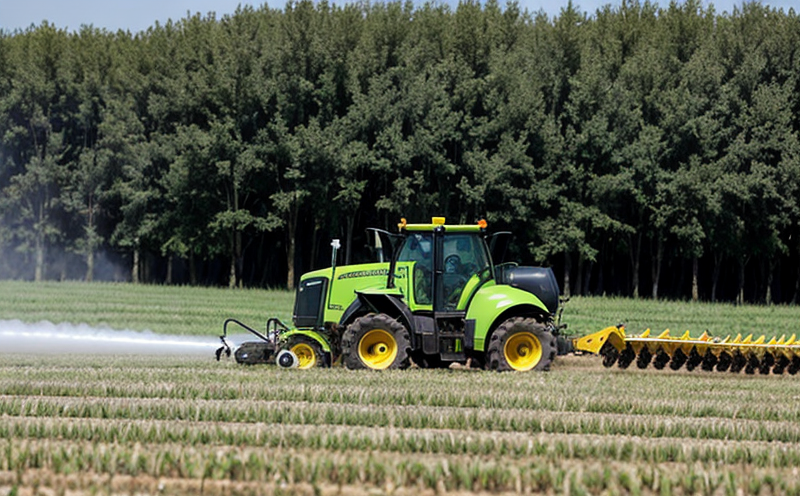Fenhexamid Residue Testing in Crops
Fenhexamid is a widely used fungicide that helps protect crops against fungal diseases. Ensuring the safe and effective use of fenhexamid requires accurate residue testing to comply with international standards and regulations. This service ensures that residues do not exceed acceptable limits, thereby protecting both human health and the environment.
Our laboratory employs advanced analytical techniques, including liquid chromatography-mass spectrometry (LC-MS/MS), gas chromatography-mass spectrometry (GC-MS), and high-performance liquid chromatography (HPLC). These methods allow for precise quantification of fenhexamid residues in various crops. Compliance with international standards such as ISO, ASTM, EN, and IEC is paramount to ensure accurate results.
Crop samples undergo rigorous preparation processes tailored to the specific type of crop being tested. For example, fruits might need washing, peeling, and slicing, while leafy vegetables require thorough rinsing and chopping. Once prepared, the samples are extracted using solvents like acetonitrile or methanol. The extracts are then purified before analysis.
Understanding the context of agricultural testing is crucial. Insecticides, fungicides, and herbicides play vital roles in maintaining crop health, but their improper use can lead to harmful residues. Testing for fenhexamid specifically helps ensure that it does not accumulate beyond safe levels, which could impact the quality of the final produce.
Regulatory bodies around the world have set maximum residue limits (MRLs) for fenhexamid in different crops. These MRLs are critical in ensuring public safety and maintaining the integrity of agricultural products. Compliance with these guidelines is essential to avoid penalties, recalls, and loss of market access.
- ISO 17025: Laboratory accreditation to ISO/IEC standards.
- ASTM D7894: Standard practice for the analysis of fungicides in soil, water, and plant tissue.
- EN 16314: Determination of pesticides in foodstuffs by liquid chromatography-tandem mass spectrometry (LC-MS/MS).
Why Choose This Test
Selecting the right laboratory for fenhexamid residue testing is crucial. Our expertise ensures that you receive accurate and reliable results, which are essential for maintaining compliance with international standards.
We understand that quality and reliability assurance go hand in hand. By choosing us, you ensure that your crop residues meet all regulatory requirements, protecting both consumers and the environment.
Our comprehensive testing services not only help you comply with regulations but also provide insights into best practices for pesticide application. This knowledge can lead to more efficient farming methods and reduced chemical use where possible.
International acceptance and recognition of our results add value to your brand, ensuring seamless market entry and maintaining a positive reputation.
Quality and Reliability Assurance
Our commitment to quality is evident in every aspect of the testing process. From sample preparation to final analysis, our team follows strict protocols designed to minimize errors and ensure precision.
We use state-of-the-art equipment and software that undergo regular calibration and maintenance. Our analysts are trained professionals who adhere strictly to international standards and guidelines.
Our quality management system is ISO 17025 accredited, ensuring that our results meet the highest industry standards. This accreditation guarantees that our methods are validated and reliable, providing confidence in our findings.
Our reputation for delivering accurate and timely results has earned us a strong client base across various sectors. We pride ourselves on maintaining long-term relationships built on trust and reliability.
International Acceptance and Recognition
- We are ISO 17025 accredited, ensuring our results meet the highest international standards.
- Our tests comply with ASTM D7894 for fungicide analysis in soil, water, and plant tissue.
- EN 16314 provides a robust framework for determining pesticides in foodstuffs by LC-MS/MS.
Our results are recognized globally, making it easier for you to export your crops without the risk of non-compliance penalties. This international acceptance enhances your marketability and ensures smooth trade processes.





